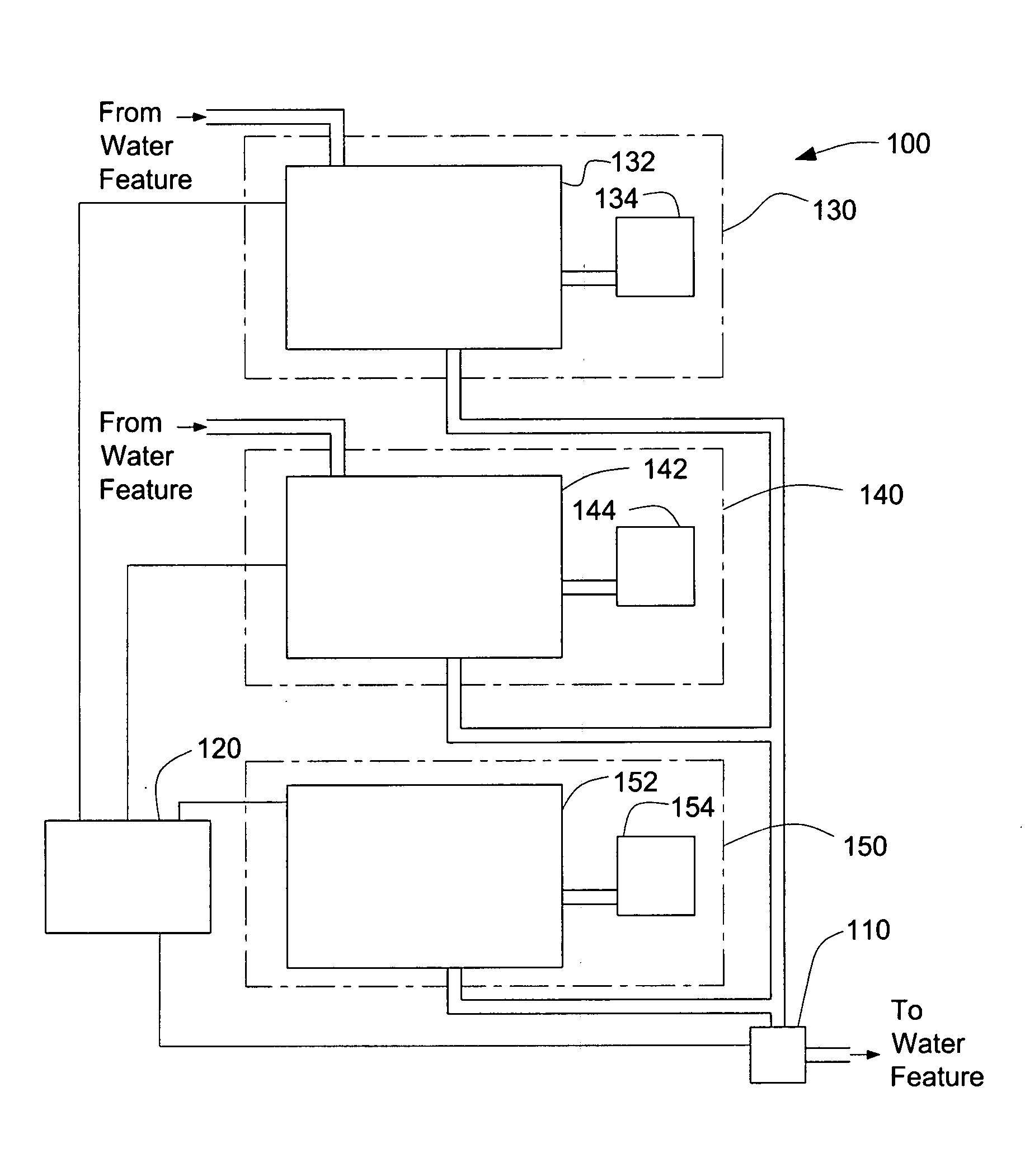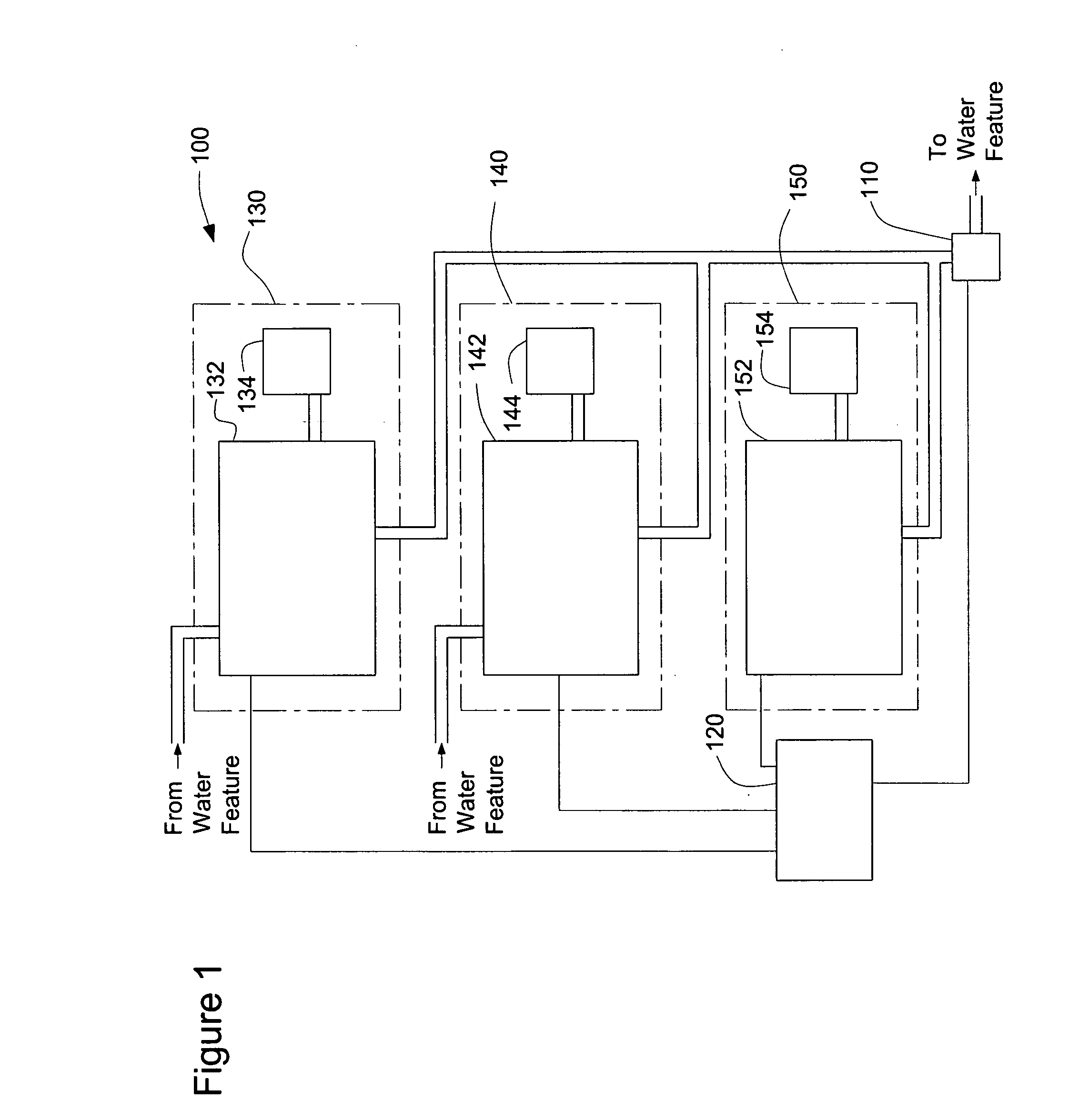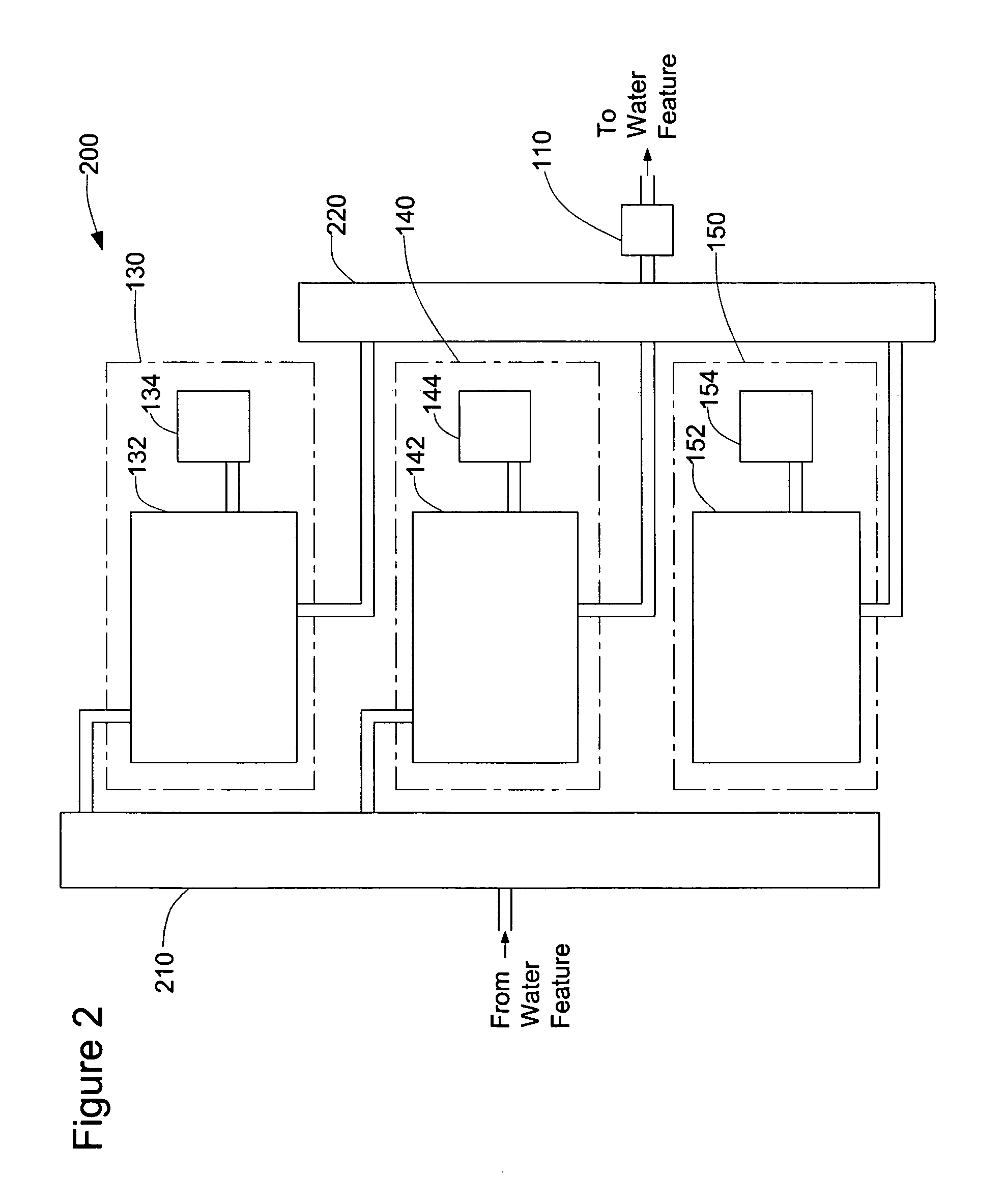System for Maintaining pH and Sanitizing Agent Levels of Water in a Water Feature
a water feature and water level technology, applied in the direction of moving filter element filters, filtration separation, separation processes, etc., can solve the problems of high cost, difficult and expensive operation of water features, and users' significant difficulty in adjusting the ph level using highly concentrated ph-modifying materials
- Summary
- Abstract
- Description
- Claims
- Application Information
AI Technical Summary
Problems solved by technology
Method used
Image
Examples
Embodiment Construction
System Overview
[0058]FIG. 1 schematically illustrates an exemplary system 100 fluidly coupled to a water feature (e.g., spa, Jacuzzi, jetted tub, whirlpool bath, or swimming pool) for automatically maintaining at least one of a pH level and a sanitizing agent level of water in the water feature. As used herein, the term “fluidly coupled” describes configurations having a fluid pathway for direct fluid flow from a first component to a second component, and configurations having a fluid pathway for indirect fluid flow from one component to another (e.g., fluid flow through one or more additional components to flow from the first component to the second component).
[0059]The system 100 comprises a sensor assembly 110 fluidly coupled to the water feature. The sensor assembly 110 is responsive to at least one of a pH level of the water and a sanitizing agent level of the water. The sensor assembly 110 is responsive to the pH level by generating a pH signal corresponding to the pH level. T...
PUM
| Property | Measurement | Unit |
|---|---|---|
| pressure drop | aaaaa | aaaaa |
| hardness | aaaaa | aaaaa |
| pressure | aaaaa | aaaaa |
Abstract
Description
Claims
Application Information
 Login to View More
Login to View More - R&D
- Intellectual Property
- Life Sciences
- Materials
- Tech Scout
- Unparalleled Data Quality
- Higher Quality Content
- 60% Fewer Hallucinations
Browse by: Latest US Patents, China's latest patents, Technical Efficacy Thesaurus, Application Domain, Technology Topic, Popular Technical Reports.
© 2025 PatSnap. All rights reserved.Legal|Privacy policy|Modern Slavery Act Transparency Statement|Sitemap|About US| Contact US: help@patsnap.com



